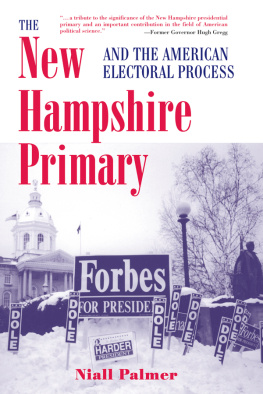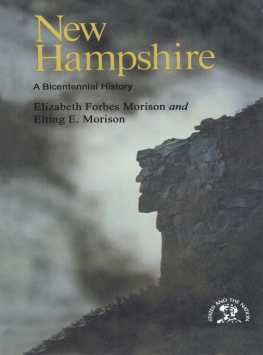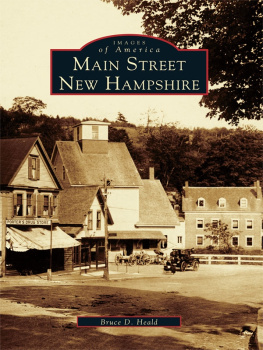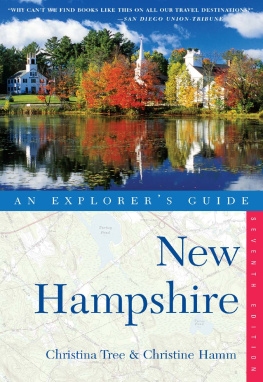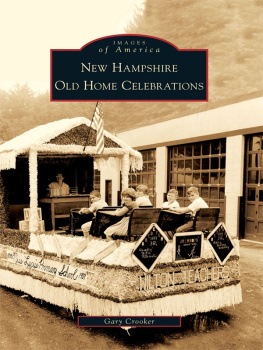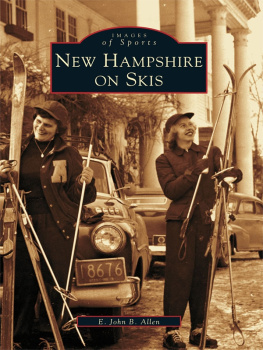Copyright Acknowledgments
The author and publisher gratefully acknowledge permission for usef the following material:
Excerpts from a letter from Joseph F. Keefe to Wiliam Gardner, reprinted with permission of Joseph F. Keefe; excerpts from a letter from Basil Bettaglia to Governor Wilson, reprinted with permission of Basil Bettaglia; comments by Emmett L. Buell, Jr., about the 1984 primary, reprinted with persmission of Emmett L. Buell, Jr.; and excerpts from memos by Martin L. Gross reprinted with permission of Martin L. Gross.
First published 2000 by Westview Press
Published 2018 by Routledge
711 Third Avenue, New York, NY 10017, USA
2 Park Square, Milton Park, Abingdon, Oxon OX14 4RN
Routledge is an imprint of the Taylor & Francis Group, an informa business
Copyright 1997 by Niall A. Palmer
All rights reserved. No part of this book may be reprinted or reproduced or utilised in any form or by any electronic, mechanical, or other means, now known or hereafter invented, including photocopying and recording, or in any information storage or retrieval system, without permission in writing from the publishers.
Notice:
Product or corporate names may be trademarks or registered trademarks, and are used only for identification and explanation without intent to infringe.
Library of Congress Cataloging-in-Publication Data
Palmer, Niall A.
The New Hampshire Primary and the American electoral process /
Niall A. Palmer ; foreward by Stuary Rothenberg..
p. cm.
Includes bibliographical references and index.
ISBN 0-8133-3777-1
1. PrimariesNew Hampshire. 2. Political cultureNew Hampshire.
3. PresidentsUnited StatesNomination. I. Title.
JK2075.N42P35 1997
324.27420154dc21
96-50322
CIP
ISBN 13: 978-0-8133-3777-7 (pbk)
Only death and taxes are inevitable, says the old saw. To those two markers in our lives, I would add a third and a fourth: the New Hampshire primary and criticism of that quadrennial event. In spite of repeated attempts to preempt and overshadow it, the New Hampshire primary has remained a political constant. It is still the first primary of each election year and the most-covered, most-discussed event of the nominating process. And it continues to play a critical role in the selection of the nations presidential nominees.
Niall Palmer (as an Englishman) brings needed distance and detail to the study of the New Hampshire primary in the first major examination of that event since Charles Breretons First in the Nation: New Hampshire and the Premier Presidential Primary (1987), and Dayton Duncans Grass Roots: One Year in the Life of the New Hampshire Presidential Primary (1991). But while Duncans journalistic approach reported on a single primary, 1988, and Breretons book was largely a narrative of the states primary battles from 1952 to 1984, Palmer goes much further as he both updates New Hampshire through the 1996 primary and brings the analytical eye of a political scientist and academic to the spectacle and to the charges of critics.
Palmer understands that any primary process is going to advantage some candidates and disadvantage others, and he recognizes that each election cycle is different. That means that tinkering with the process often produces different results than anticipated. While the delegate selection process was front-loaded in 1996, advocates argued that it would minimize the likelihood of long, drawn-out (and frequently divisive) battles for delegates. But front-loading the process tends to benefit candidates who begin with national stature, who can compete in a number of states simultaneously, and who can raise mountains of cash. In 1996, the front-loaded schedule helped win the Republican nomination for the front runner, Bob Dole, but it didnt prevent Dole from being battered by attacks from fellow Republicans or from running out of money during the delegate selection phase, thereby eroding his already bleak general election prospects.
Palmer documents the ways in which the national parties have sought to pressure New Hampshire and other states to follow a pre-ordained schedule, and he gives us a behind-the-scenes look at the maneuvering in 1996 by Arizona and Delaware to challenge New Hampshires position as first among equals and the Granite States efforts to keep their prized position at the front of the primaries. New Hampshire is undoubtedly the only state that could demand the candidates pass up other primaries, and the states Republican voters helped destroy the presidential ambitions of Texas senator Phil Gramm when he refused to support a seven-day window between the New Hampshire and Delaware primaries.
Not merely a cheerleader for the Granite State, Palmer defends the state against the now routine attack on its representativeness. He argues that in many waysincluding the racial makeup of its citizens, its tax structure and anti-tax obsession, its partisanship and its sizeNew Hampshire does not mirror the rest of the country. But he notes that there is no consensus on which state should replace New Hampshire at the front of the pack, and he makes it clear that New Hampshire voters take their responsibility for winnowing the field of presidential hopefuls very seriously.
Palmer does an excellent job dealing with the way technology has changed the states primary. While everyone else focuses on (and, according to Palmer, exaggerates) the impact of the notorious Union Leader , he also devotes much-needed attention to WMUR, the states influential television station. Palmer, of course, echoes the view of others that retail politics remains a staple of the primary, but he notes that WMURs influence has come to rival that of the Union Leader . And he asserts that the station is at the center of every media strategy of every serious presidential primary campaign.
Part of our fascination with the Granite States primary stems from the strange way in which victory and defeat are judged. Unlike the general election or the ballots during presidential nominating conventions, the winner in New Hampshire isnt necessarily the candidate who receives the most votes, as Edmund Muskie found out in 1972. Thats because the primary is all about expectations, and expectations change during the months before the election and from cycle to cycle. In 1992, for example, Paul Tsongass victory in the Democratic race was overshadowed by Bill Clintons performance, which suggested to reporters, pundits and party insiders that the Arkansas governor was still a credible candidate even after significant questions had surfaced about his private life.
Palmer explains the expectations game as the result of the timing of the primary and the uncertainty surrounding the entire process. Largely because it occupies a key place in the early weeks of the electoral cycle, he writes, New Hampshire campaigns are difficult to report and especially vulnerable to competing interpretations, speculation and the attendant phenomenon of pack journalism. Until the results are in, the presidential nominating process has no clearly defined context, leaving candidates and reporters greater leeway for subjective claims and counter-claims.
Will the New Hampshire primary continue to receive the attention it has in the past? Probably, at least in the months before the 2000 primary. Most of the momentum for front-loading the primary calendar has dissipated, and New Hampshire proved in 1996 that it is more than willing to fight for its place as the first primary. While there will always be talk about creating regional primaries or even one national nominating primary, there is no evidence that those sorts of systems would produce better nominees or that support for changing the current system has reached anything close to critical mass.

